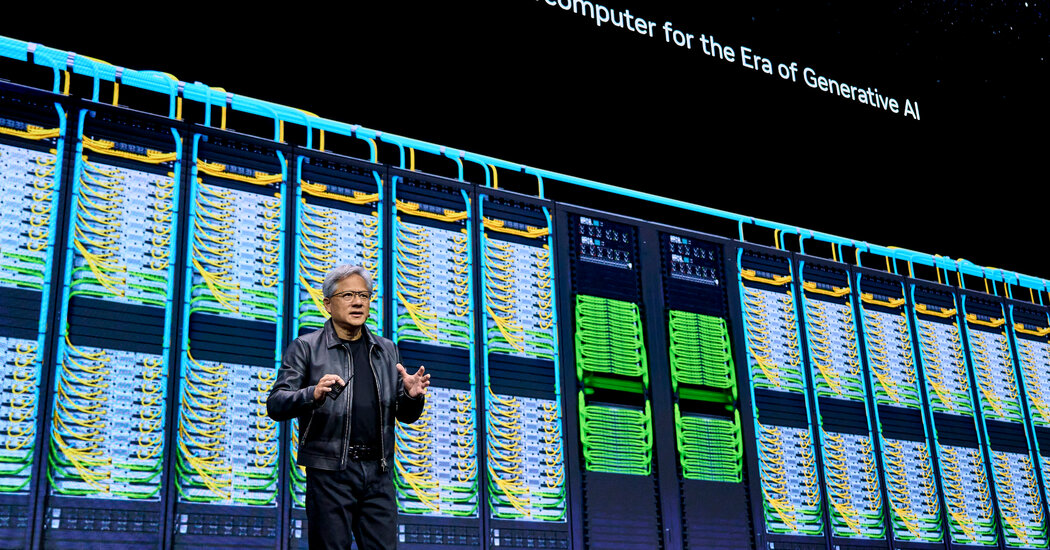
The A.I. chip maker’s revenue more than tripled, and profits rose ninefold. It also projected that its revenue would more than triple again.
Nvidia, the kingpin of chips powering artificial intelligence, on Wednesday released quarterly financial results that reinforced how the company has become one of the biggest winners of the artificial intelligence boom, and it said demand for its products would fuel continued sales growth.
The Silicon Valley chip maker has been on an extraordinary rise over the past 18 months, driven by demand for its specialized and costly semiconductors, which are used for training popular A.I. services like OpenAI’s ChatGPT chatbot. Nvidia has become known as one of the “Magnificent Seven” tech stocks, which along with others like Amazon, Apple and Microsoft have helped power the stock market.
Nvidia’s valuation has surged more than 40 percent to $1.7 trillion since the start of the year, turning it into one of the world’s most valuable public companies. Last week, the company briefly eclipsed the market values of Amazon and Alphabet before receding to the fifth-most-valuable tech company. Its stock market gains are largely a result of repeatedly exceeding analysts’ expectations for growth, a feat that is becoming more difficult as they keep raising their predictions.
On Wednesday, Nvidia reported that revenue in its fiscal fourth quarter more than tripled from a year earlier to $22.1 billion, while profit soared nearly ninefold to $12.3 billion. Revenue was well above the $20 billion the company predicted in November and above Wall Street estimates of $20.4 billion.
Nvidia predicted that revenue in the current quarter would total about $24 billion, also more than triple the year-earlier period and higher than analysts’ average forecast of $22 billion.
Jensen Huang, Nvidia’s co-founder and chief executive, argues that an epochal shift to upgrade data centers with chips needed for training powerful A.I. models is still in its early phases. That will require spending roughly $2 trillion to equip all the buildings and computers to use chips like Nvidia’s, he predicts.
Thank you for your patience while we verify access. If you are in Reader mode please exit and log into your Times account, or subscribe for all of The Times.
Thank you for your patience while we verify access.
Already a subscriber? Log in.
Want all of The Times? Subscribe.